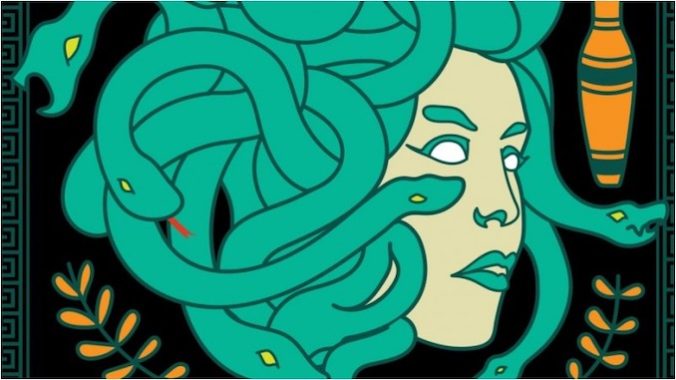Natalie Haynes Beautifully Reinvents the Legend of Medusa In Stone Blind

Author Madeline Miller is often credited with the recent surge of interest in fictional stories based on retellings and reimaginings of Greek mythology within the world of publishing, thanks to her bestselling novels Circe and The Song of Achilles.(Both of which are, by the way, excellent.) But it should also be noted that Natalie Haynes has been out here doing fantastic things in this particular sub-genre of historical fiction for just as long—and in a completely different way.
Her stories are told using an expansive cast of multiple POV characters and from an explicitly feminist perspective, allowing famous figures like Clytemnestra, Helen of Troy, Andromache, Penelope, Hecuba, Antigone, and Cassandra a chance to speak for themselves and to take center stage in their own stories. (Her A Thousand Ships explicitly frames itself as a recounting of the Trojan War from the perspective of the women it impacted.) That Haynes would eventually turn her eye to Medusa, one of the most famously monstrous women in all of mythology feels like a natural next step for her as a writer, and her latest effort, Stone Blind is both surprising and thoroughly compelling, a retelling that will likely make anyone who reads it reexamine their own assumptions about not just the original myth, but the ways history likes to tell stories about women generally.
The story of Perseus and Medusa is one of the most well-known in all of mythology, the tale of a dangerous woman with snakes for hair who can turn anyone who looks into her eyes into stone. She is beheaded by the hero Perseus, who is sent on a quest to bring back the head of a Gorgon to save his mother from an undesirable marriage. With some help from a variety of tools provided by the gods, Perseus uses a shield to avoid looking directly at the supposed monster and then cuts her head off, ultimately using it to turn all his enemies to stone upon his return home. Medusa is given very little perspective or agency in this story, and her life is generally presented as less interesting than the fact of her death and all the things Perseus can now do with a relic of her body.
Stone Blind does its best to change that, reframing Medusa’s story as one of a young woman deeply wronged by a patriarchal society more interested in propping up the success of the dim, bro-y Perseus, whose victories are explicitly made possible only by repeated intercession of the gods who think he’s an idiot. Here, Medusa is the only mortal in a family of minor immortals, a beautiful young woman who doesn’t yet have snakes for hair or a deathly murderous gaze. Her loving relationship with her two sister Gorgons is a substantial part of the story and for a time they live happily on their lands on the north coast of Africa. But when the teenage Medusa catches the eye of sea god Poseidon, he rapes her in the temple of Athena—-forcing her to submit by threatening to violently kill all the humans in their kingdom if she does not. Reinforcing the patriarchal tendencies of the ancient world, Athena’s fury is not directed at her uncle for violating her holy place, but at Medusa for allowing it, and the rest of the story sees the goddess doing her best to victim shame and punish a young girl whose life has already been brutally violated. Here, Medusa’s story seen as a tragedy of women, not the triumph of a man.
-

-

-

-

-

-

-

-

-

-

-

-

-

-

-

-

-

-

-

-

-

-

-

-

-

-

-

-

-

-

-

-

-

-

-

-

-

-

-

-








































